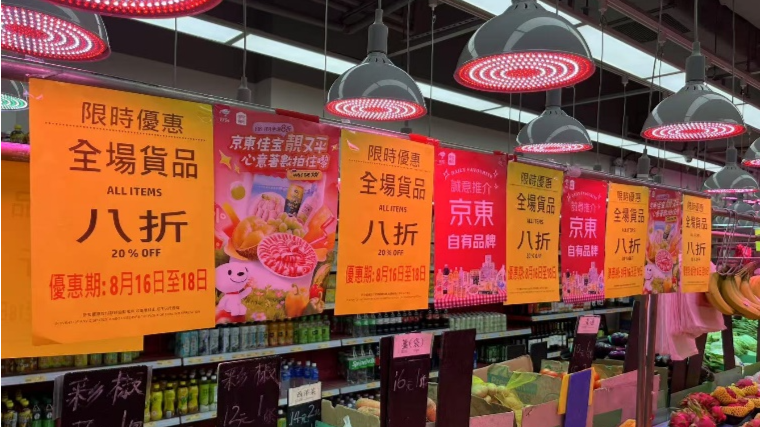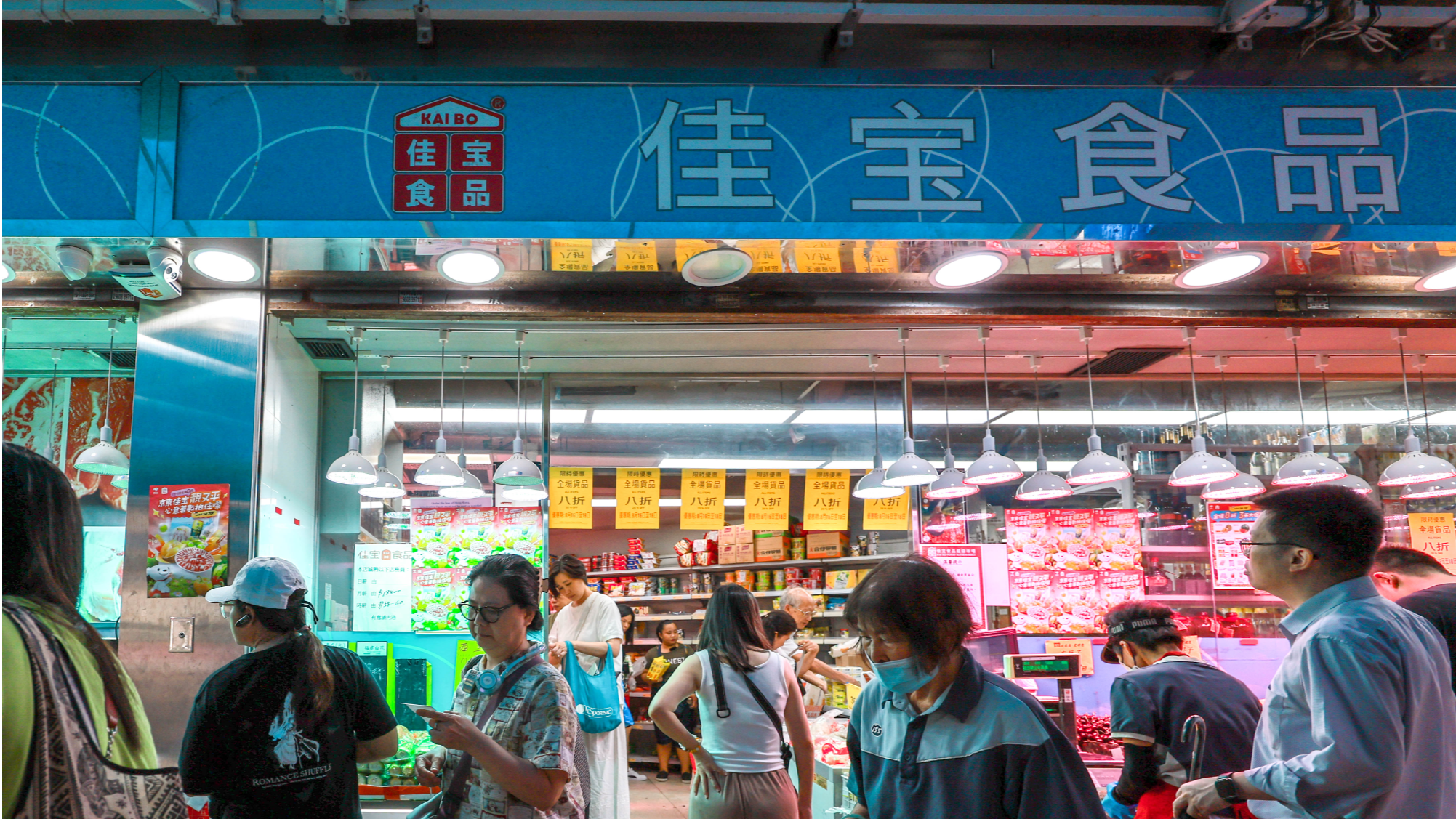
Chinese mainland e-commerce giant JD has started operating its newly acquired Hong Kong grocery chain, Kai Bo Food Supermarket, while another mainland e-commerce titan, Taobao, announced last week the launch of its "free shipping on single items" policy in the city, in a sign that mainland e-commerce giants are stepping up their investments and adopting more measures to compete within the Hong Kong market.
JD officially announced on Aug 16 that it had completed its acquisition of Kai Bo, and began a three-day promotion of a 20 percent discount on all products, ending today.
Inside Kai Bo stores, promotional posters featuring the JD Kai Bo Supermarket brand are already on display.
READ MORE: JD targets Kai Bo to revamp retail market
Holly Wen, a local resident, told China Daily inside Kai Bo’s branch in Tin Wan Street that she often shops at Kai Bo and expects JD’s acquisition to bring more high-quality products from the Chinese mainland to Hong Kong residents.
Wen was accompanied by her 9-year-old son, who also showed a great deal of interest in brands from the Chinese mainland — although the boy, who was born in Hong Kong, said he is not familiar with JD.
Some of Kai Bo’s stores are already offering dozens of JD’s products, including fresh fruits and vegetables, seafood, grains, oils, groceries, meat, poultry, eggs, and milk, according to local media reports.
JD's acquisition of Kai Bo should have a positive impact on the Hong Kong economy, said Terence Chong Tai-leung, executive director of the Lau Chor Tak Institute of Global Economics and Finance at the Chinese University of Hong Kong (CUHK).
Compared with Chinese mainland shops, which operate both online and offline, Hong Kong's physical retail stores are more likely to close down if they cannot afford the high rents and labor costs, Chong said.
If these stores do close down, it would also impact the overall rental market, but partnerships with Chinese mainland e-commerce companies can help reverse this difficult situation, he added.

In addition to JD’s latest move, Alibaba’s e-commerce platform Taobao also announced on Aug 12 that it is running a trial to provide a free shipping service in Hong Kong until Sept 11.
During the trial, local consumers who purchase specified mainland products through the platform can choose from a wider range of products without reaching a minimum purchase amount to qualify for free shipping.
Taobao decided to adopt this strategy after Pinduoduo, another Chinese mainland e-commerce platform, and JD implemented similar — and still ongoing — measures in Hong Kong at the end of 2024 and the beginning of March 2025, respectively.
Peter Shiu Ka-fai, a lawmaker representing the city’s wholesale and retail industries, said the emergence of these e-commerce platforms will place further pressure on local retail industries, especially those selling furniture, electrical appliances, and daily necessities.
Shiu said he is actively communicating with the Hong Kong SAR government to establish new laws to protect local retailers.
READ MORE: JD refutes reports on acquisition of Kai Bo
Despite the rise of e-commerce, some experts believe that physical stores continue to hold a strong competitive edge in certain sectors.
For instance, in terms of jewelry, watches and clocks, and valuable gifts, “customers in Hong Kong still prefer visiting physical stores to examine the quality firsthand and enjoy the service,” said Andy Kong, director of real estate agency Midland IC&I.
In addition, local retailers can leverage the e-commerce boom in Hong Kong to develop new strategies, such as online and offline integration, and to explore overseas markets, Shiu said.
Contact the writer at thor_wu@chinadailyhk.com


